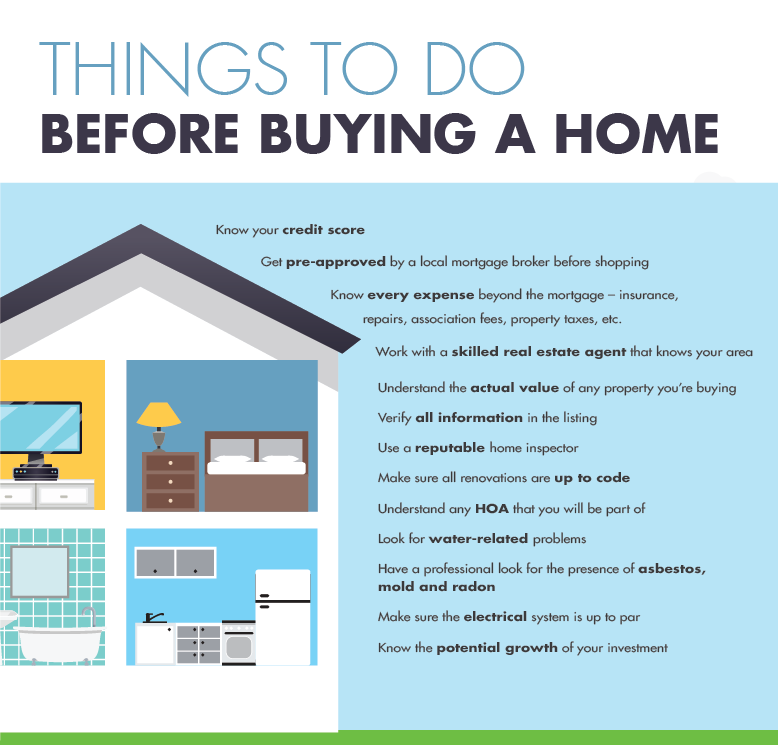Recent Posts
categories
Archives
- Tips to Lower your Electric BillPosted: 4 years ago
- 5 Easy Home Improvement Projects & Upgrades For the WinterPosted: 4 years ago
- Benefits to buying in the winterPosted: 4 years ago
- Cash In with a Cash-Out RefinancePosted: 5 years ago
- Mortgage MythsPosted: 5 years ago
- Q&A: All About Flooring — Hardwood, Carpeting, Tiling, LaminatePosted: 5 years ago
- Tip: 3 Foolproof Social Media Marketing TipsPosted: 5 years ago
- Tips for Hosting a Stress-Free Holiday DinnerPosted: 5 years ago
- Is a Mortgage Refinance Right for You?Posted: 6 years ago
- Check Your Disaster Supplies KitPosted: 6 years ago
- Create an Early Holiday Shopping BudgetPosted: 6 years ago
- 9 Ways to Make Moving Day EasierPosted: 6 years ago
- July 2018 Market Update – Twins Cities RegionPosted: 6 years ago
- Fall Homeowners ChecklistPosted: 6 years ago
- Scam Alert: Spoofed IRS Phone NumbersPosted: 6 years ago
- 15 Years of First Class MortgagePosted: 6 years ago
- How to buy a second homePosted: 6 years ago
- Q&A: Lawn Watering SecretsPosted: 6 years ago
- Troubleshoot Your Air ConditioningPosted: 6 years ago
- Your Mortgage, What to Expect: Clear To ClosePosted: 6 years ago
- Twins Cities Region Monthly Indicators – APRIL 2018Posted: 6 years ago
- Your Mortgage, What to Expect: UnderwritingPosted: 6 years ago
- Your Mortgage, What To Expect: Property AppraisalPosted: 6 years ago
- 3 Tips to Improve your Credit Score and Score a Lower Interest RatePosted: 6 years ago
- Changing Interest Rates Have A High Impact On Purchasing PowerPosted: 6 years ago
- The Myth of Multiple Mortgage Credit InquiriesPosted: 6 years ago
- Things to do BEFORE you buy a home.Posted: 6 years ago
- March Tech Tip: Pack Smarter With PackPointPosted: 6 years ago
- 4 Ways to Pay Off Your Mortgage EarlyPosted: 6 years ago
- Clean House in a HurryPosted: 6 years ago
- Your Mortgage, What To Expect: Document ReviewPosted: 6 years ago
- Chill Winter Utility BillsPosted: 6 years ago
- Six Tips to Help Your Home Sell This FallPosted: 7 years ago
- 4 Things to Know About Closing CostsPosted: 7 years ago
- Understanding Your Credit ScorePosted: 7 years ago
- Equifax Data Breach: What should you do now?Posted: 7 years ago
- Should You Refinance Your FHA to a Conventional Loan?Posted: 7 years ago
- 6 Ways to Save on Paint ProjectsPosted: 7 years ago
- Q&A: Mortgage InsurancePosted: 7 years ago
- How to Keep Your House Cool this SummerPosted: 7 years ago
- Mortgage Education: “What’s the Point?”Posted: 7 years ago
- Q&A: Spotting a Spoof SitePosted: 7 years ago
- Moving ChecklistPosted: 7 years ago
- Squash Marital Money SquabblesPosted: 7 years ago
- April 2017: Twin Cities Real Estate Market UpdatePosted: 7 years ago
- Your Spring Guide to Home StagingPosted: 7 years ago
- March 2017: Twin Cities Real Estate Market UpdatePosted: 7 years ago
- Don’t be a Victim — Four Ways Protect Yourself from Refinance ScamsPosted: 7 years ago
- Local Market Update: Minneapolis Area Association of RealtorsPosted: 7 years ago
- First-Time Homebuyers: Where to startPosted: 7 years ago
- Dear First Class Mortgage:Posted: 7 years ago
- First Class Mortgage. Our Expertise, Your Peace of Mind.Posted: 7 years ago
24
April
Mortgage Myths
Posted byAre you looking to buy a home this spring, but are worried you don’t have enough for a 20% down payment?
Good news! You can put down less than 20%. In fact, according to the National Association of Realtors, in 2018, 72% of first-time homebuyers made a down payment of 6% or less.
Though the 20% down myth has been around a while, there are several low- and even zero-down-payment loan options on today’s market.
FHA loans, for example, allow for down payments as low as 3.5%, while some conventional loan programs offer down payments of 3-5%. For veterans and military service members, VA loans offer mortgages with zero down payment altogether. Also, if you are considering a home outside of major urban areas, a USDA home loan is a zero down payment mortgage for eligible rural and suburban homebuyers.
Don’t let a misconception about down payments keep you from purchasing a home. Give us a call today to learn more about the variety of loan options or apply online today.
31
May
Your Mortgage, What to Expect: Underwriting
Posted byWe are now at the halfway point of the mortgage process. Underwriting.
What is mortgage underwriting?
During the mortgage underwriting stage, your application moves from the desk of the loan processor to the mortgage underwriter. The mortgage underwriter will ensure your financial profile matches your lender’s guidelines and loan criteria and he or she will ultimately make the final decision: to approve or deny your loan request.
How Underwriters Assess Risk, the “Three C’s” of underwriting:
- Capacity: Do you have the means and resources to pay off your debts? Underwriters assess your available resources by reviewing your employment history, your income, your debts and your asset statements. (Note: If you are self-employed, you may be asked to provide much more documentation of your income and work status.)
They will also review your savings, checking, 401(k), and IRA accounts to ensure you can still pay your mortgage if you lose your job or become ill. Underwriters will pay particular attention to your debt-to-income ratio; they want to make sure you have enough money to fulfill your current financial obligations, as well as take on a new mortgage. - Credit: Do you have solid repayment and credit history? Your credit is one of the most critical factors in the loan approval process. The underwriter will review your credit score to see how you have handled past bills (like auto loans, student loans, and home equity lines of credit) and predict your ability to make the proposed mortgage payments on time and in full.
- Collateral: What is the value and type of property? The mortgage underwriter must make sure the loan amount meets the loan-to-value requirements of the product. Otherwise, in the case of a default, a lender may not be able to recover the unpaid balance of the loan. An underwriter will typically order a home appraisal which will assess the home’s current worth.
Also, the underwriter will likely review the type of property you are looking to buy, because different kinds of properties carry different risks. For example, many lenders consider an investment property a riskier investment; this is because, historically, a borrower is more likely to walk away from an investment property than their primary residence in a difficult financial situation.
Ready to get started? Give us a call or fill out an online application: APPLY ONLINE HERE.
Source: www.PennyMacUSA.com
25
May
Your Mortgage, What To Expect: Property Appraisal
Posted byAfter your initial document review has been completed and you have been pre-approved, the next step is a property appraisal.
What is a property appraisal and why is it so important?
A major part of the home sale process is the appraisal. No matter how much a seller wants for his home, or how much a buyer is willing to pay for a home, in the end, it all comes down to the appraisal.
A property appraisal is an unbiased estimate of the true (or fair market) value of what a home is worth. All lenders order an appraisal during the mortgage loan process so that there is an objective way to assess the home’s market value and ensure that the amount of money requested by the borrower is appropriate.
While appraisals can vary by state, there are three main parts to a home appraisal:
- The inspection – A licensed appraiser comes to the property and inspects it to determine a fair market value
- Research on comparables – After the inspection, the appraiser researches similar homes in your area and compares recent sales to determine the market value
- Final appraisal report – using the data gathered from the inspection and comparables research, the appraiser issues a final appraisal report
Several determining factors influence an appraisal:
- The condition of the housing market
- Property location and neighborhoods
- Compared value of similar homes
- Physical condition
- Amenities
- Number of bedrooms and bathrooms
- Age and design
- Overall appearance, interior, and exterior
- Energy efficiency and appliances
Before arriving at a final decision, the appraiser must complete a considerable amount of market analysis, in addition to property specific research. There’s also the need to precisely define the purpose of the appraisal. There are, for example, various types of value — including fair market value, insurance value, tax value and value in use.
Ready to get started? Give us a call or fill out an online application: APPLY ONLINE HERE.
30
April
Changing Interest Rates Have A High Impact On Purchasing Power
Posted byPurchasing power, simply put, is the amount of home you can afford to buy with the budget you have available to spend. As rates increase, the price of the house you can afford will decrease if you plan to stay within a particular monthly housing budget.
The chart below shows what impact rising interest rates would have if you planned to purchase a home within the local median price range, and intended to keep your principal and interest payments between $1,600-$1,700 a month.
With each quarter of a percent increase in interest rate, the value of the home you can afford decreases by 6.25% (for every $25,000). DOWNLOAD PRINTABLE FILE
02
April
Things to do BEFORE you buy a home.
Posted byWhether it is your first home or you’re already a homeowner, there are some critical thing you should do before a move to a new place. Here are 13 things that will help make your next move easier. 
- Know your credit score. Your score
- Get pre-approved by a local mortgage broker before shopping
- Know every expense beyond the mortgage – insurance, repairs, association fees, property tax, etc.
- Work with a skilled real estate agent that knows your area.
- Understand the actual value of any property you are buying
- Verify all the information in the listing
- Use a reputable home inspector
- Make sure all renovations are up to code
- Understand any Home Owners Association that you will be part of
- Look for water-related problems
- Have a professional look for the presence of asbestos, mold, and radon.
- Make sure the electrical system is up to par
- Know the potential growth of your investment




